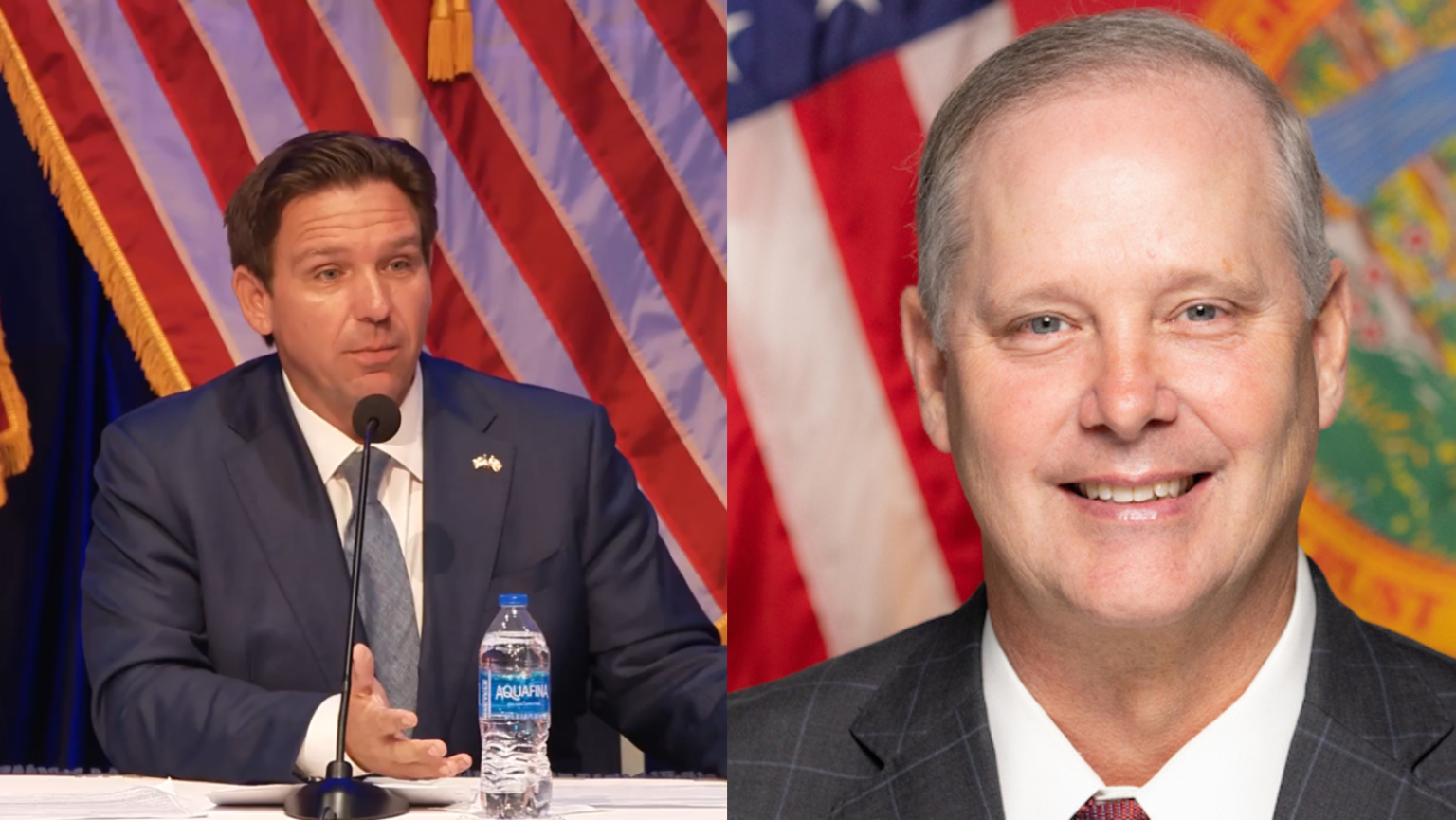
Florida Governor Ron DeSantis has ignited a contentious debate over immigration enforcement, ballot initiatives, and the distribution of political power in his state. With fellow Republican leaders voicing opposition to some of his proposals, the conflict underscores a shifting political landscape. This article delves into the complex dynamics surrounding DeSantis’ initiatives, analyzing their implications for Florida’s governance, business interests, and immigrant communities.
The Legislative Showdown Over Immigration
Gov. DeSantis’ push for a special legislative session to address immigration issues has met with resistance from Republican legislative leaders. His proposed measures, including transferring immigration enforcement powers from the governor’s office to the Department of Agriculture and Consumer Services, have sparked controversy. Senate President Ben Albritton and House Speaker Danny Perez labeled the proposals “premature” and questioned the need for a special session. Their rebuke highlights a growing divide within the Florida GOP.
DeSantis’ proposal seeks to create a Chief Immigration Officer (CIMO) position within the agriculture department, allocating $500 million and nearly 150 new positions for immigration enforcement. However, DeSantis criticized the plan, claiming it unconstitutionally strips his office of authority. Legislative leaders countered, emphasizing that the agriculture commissioner already holds significant law enforcement powers and could effectively oversee immigration enforcement.
The CIMO’s responsibilities would include coordinating with federal agencies, monitoring local government compliance, and administering immigration-related grants. Agriculture Commissioner Wilton Simpson, a DeSantis ally, expressed support, citing the opportunity to enhance Florida’s role in combating illegal immigration.
The Political Context
Florida’s political structure—with its independently elected Cabinet members—complicates the legislative conflict. While DeSantis has historically wielded significant influence over the Legislature, the recent pushback suggests a recalibration of power. This tension reflects broader shifts as DeSantis’ term nears its end.
The proposed immigration enforcement measures also align with former President Donald Trump’s policies. DeSantis has positioned Florida as a leader in supporting Trump’s border security agenda, but the overlap introduces additional political nuances. Trump, a prominent Florida resident, has his own stake in state policy, particularly regarding gambling legislation.
Ballot Initiatives and Gambling Interests
DeSantis’ push to overhaul Florida’s citizen-led ballot initiative process could significantly impact Trump’s business ambitions. Trump has long sought to establish a casino in South Florida, but a 2018 constitutional amendment requires voter approval for any gambling expansion. DeSantis’ proposal would make it nearly impossible to gather the necessary signatures, effectively securing a monopoly for the Seminole Tribe of Florida, which operates casinos statewide.
The Seminole Tribe has financially supported DeSantis’ political endeavors, further complicating the relationship between DeSantis and Trump. By tightening restrictions on ballot initiatives, DeSantis’ plan could hinder Trump’s aspirations to develop a Vegas-style resort in Miami, despite the Doral property’s proximity to tribal casinos.
Legal experts argue that the proposed changes would cement the Seminole Tribe’s dominance in Florida’s gaming industry. Trump, however, may leverage his popularity to overcome these obstacles, although the hurdles remain significant.
Impact on Immigrant Communities
DeSantis’ immigration proposals have sparked alarm among immigrant advocates, who warn of potential harm to Florida’s diverse population. With immigrants comprising 20% of the state’s residents, measures such as requiring identification for remittances and empowering local law enforcement to act as immigration agents could erode trust in public institutions.
Tessa Petit, director of the Florida Immigrant Coalition, highlighted concerns that such policies would discourage immigrants from reporting crimes or engaging with law enforcement. Additionally, restrictions on remittances could destabilize countries reliant on these funds, driving further migration pressures.
Legislative Resistance and Broader Implications
The resistance from Florida’s Republican leadership represents a notable shift in the state’s political dynamics. Historically, the Legislature has largely supported DeSantis’ agenda, including his battles with federal COVID-19 policies and corporate giants like Disney. However, the current conflict reveals fractures within the party as lawmakers assert their authority.
Albritton and Perez’s insistence on addressing immigration during the regular session reflects their desire to maintain legislative independence. Their stance also signals growing skepticism about DeSantis’ methods, particularly as his influence wanes in his final term.
Budget and Implementation Challenges
The proposed $500 million budget for the CIMO initiative raises questions about its feasibility and effectiveness. Funding allocations include $375 million for enforcing federal immigration policies, $100 million for local law enforcement grants, and nearly $9 million for new personnel within the agriculture department. Critics argue that these resources could be better utilized elsewhere, particularly given Florida’s existing law enforcement infrastructure.
DeSantis’ broader immigration agenda also includes measures to criminalize illegal entry, require identification for remittances, and mandate local compliance with federal deportation programs. While these proposals align with Trump’s immigration policies, they face legal and logistical challenges. Similar initiatives in other states have encountered court battles, and Florida is likely to follow suit.
Future Prospects
The legislative battle over immigration and ballot initiatives underscores the evolving dynamics of Florida’s governance. As DeSantis navigates the challenges of his final term, his ability to consolidate power and implement his agenda will be tested. The tension between the governor and legislative leaders highlights the delicate balance of authority in a state with a decentralized executive branch.
For Trump, the proposed changes represent a potential roadblock to his business ambitions. However, his enduring popularity in Florida and ability to mobilize public support could prove decisive. The Seminole Tribe’s influence further complicates the landscape, as their financial backing of DeSantis aligns with their interests in maintaining a gaming monopoly.
Conclusion
The disputes over immigration enforcement, ballot initiatives, and gambling expansion reflect deeper shifts in Florida’s political and social fabric. DeSantis’ proposals—while ambitious—face resistance from within his party, legal challenges, and public criticism. As the Legislature prepares to vote on key measures, the outcome will shape Florida’s trajectory on immigration policy, political power dynamics, and business interests for years to come.
Ultimately, the unfolding drama illustrates the complexities of governance in a state at the crossroads of national politics, economic interests, and demographic diversity. The stakes are high, not only for DeSantis and Trump but also for the millions of Floridians whose lives and livelihoods are intertwined with the policies being debated.

